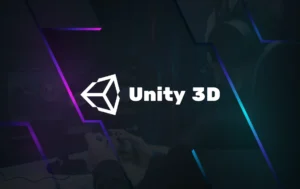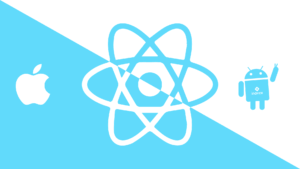Are you looking to break into the gaming industry in the UK? It’s an exciting time, as game development UK is rapidly growing, and new opportunities are constantly opening up.
Whether you’re a programmer with no experience or a seasoned developer just trying out something new, starting a career in game development UK can be both rewarding and challenging. With this guide on how to start game development UK, you’ll get the information and advice needed to make your dream of developing video games come true!
Familiarize Yourself With The Game Development Process:
Game development UK is an exciting and creative industry that is consistently growing. As it is becoming increasingly popular, more people want to become involved in developing their games. The game development UK process typically involves conception and planning, pre-production, production, and post-production.
During conception and planning, game designers decide on a theme or concept for the Game and create a design document outlining the project’s scope. This document includes essential features of the gameplay, characters, storyline, art style, and tech requirements. Designers also consider how each element will be implemented into the game engine.
In pre-production, teams collaborate to create assets for the Game, such as sprites or 3D models of objects or characters, which are then incorporated into the codebase. They also define tasks for team members to complete during production, such as coding levels or creating sound effects.
Production involves building levels with various elements according to the design document from earlier stages and debugging any issues with coding or art assets during this time. Post-production consists of polishing graphics and animations and fine-tuning gameplay mechanics before launch.
Ultimately, success in game development UK requires close collaboration between professionals with varied skill sets, such as coders, artists, designers, and composers, who must work together to produce an enjoyable product for players within a given time-frame.
Brainstorm Game Ideas
Developing game ideas in the UK is an exciting way to express creativity and challenge problem-solving skills. Many game development UK techniques can be employed, from game jamming, solo game development UK and even Game community building.

A great game idea can come from a simple or even an ambitious vision – endless possibilities. Brainstorming game ideas allows you to set goals that can motivate players while they help you engage with the game design process. With new tools, it has always been challenging to create an engaging game experience.
1. Adventure Game- Uk Edition.
An open-world adventure game set in the British Isles, featuring iconic landmarks and characters from the United Kingdom. Players must use their intellect and skill to explore the environment, solve puzzles, uncover secrets, and save the day.
2.Mystery Mansion.
A hidden object puzzle game set in a grand British estate with multiple rooms to explore. Players will need to find clues and objects throughout the mansion to piece together a story and unravel its secrets.
3.Racing Game.
Set on the winding roads of Britain, players can choose from various licensed cars to race through different courses across Great Britain. Players must run against AI opponents or challenge friends in multiplayer modes.
4.Strategy Game.
Set during World War II, players take command of an Allied army on the British Isles tasked with defending against a German onslaught. Players must make strategic decisions about where to place troops, manage resources and overcome enemy forces to win the battle.
Create A Game Design Document:
Creating a game design document is an essential step in the game development UK process in the UK. A well-crafted copy should include specific elements that serve as a roadmap for your development team to follow and ensure everybody is on the same page about the project.
Here are some of the critical components for constructing your own game design document:
Vision Statement.
Your vision statement should be concise and direct, yet inspiring. It should clearly describe what you want your Game to accomplish—its purpose, why it exists, and how it will engage players.
Target Audience.
Identify your target audience and create user profiles to ensure that you’re developing content with them in mind. This could include age range, gender, skill level, platform preference, etc.
Game Mechanics & Balance.
Describe the rules of play, your Game’s objectives, and its core mechanics like resource management and progression systems .Also, note any balancing issues that must be addressed while playing or during the playthrough.
Story & Theme.
Consider what kind of story you want to tell, where it takes place, and how it’s said (i.e., through text or visuals).Determine if there are any themes within your story and consider how they could be translated into gameplay elements such as quests or puzzles.
Level Design.
Documenting level objectives—including puzzles, combat encounters, and narrative experiences—and the overall structure of levels is essential for keeping track of progress throughout development cycles.
This should also include any user interface guidelines for creating engaging interfaces for players on different platforms (mobile devices, PC/Macs, etc.).
User Interface Design.
Outline all visual elements required for your game design, including illustrations and animations – this helps ensure consistency across all platforms about menus and HUDs (heads-up displays).

Make sure you account for both performance requirements (on low-end PCs) as much as aesthetics requirements (on high-end PCs).
Asset Lists & Production Schedules.
Keep track of assets needed, such as character models, textures, sound effects, etc., so everything can be created according to plan within timeline constraints. If something doesn’t fit within these timelines, ensure this gets noted immediately.
Additionally, consider whether cutscenes will be necessary; these may require additional production time versus animation used in-game which would typically require less time due to a simpler animation rig being used compared with complete 3D cinematics production techniques used in cutscenes.
Assemble A Team
Assembling a team for game development UK requires careful planning and selection of experienced professionals. It is important to find individuals with advanced coding, 3D modeling, animation, audio engineering, game design, and project management skills.
Coding specialists must know C++, Java, HTML5, and other programming languages used for game development. 3D modelers should be proficient in using 3D software such as Autodesk Maya or Blender for creating detailed visuals. Animators should have experience producing realistic motion sequences and handling character rigging tasks. Audio engineers are necessary for recording sound effects and background music that suits the Game’s mood; they must also be able to edit audio files accurately.
Game designers must have strong storytelling abilities and design levels that keep players engaged throughout the Game. Finally, a project manager should be hired to manage all tasks and resources within a given timeline. By sourcing talented professionals with specialized skill sets in each area, a team can be assembled to work together efficiently while producing high-quality content for an enjoyable gaming experience.
Choose A Game Engine
For game development UK, choosing the right game engine is vital. It needs to provide the tools and platform for game designers to work with and seamless platforms for game players.
Many game engines offer various features and capabilities, so it is essential to consider all aspects, such as capability, cost, and support, before deciding. Ultimately, the best game engine must satisfy the game developer’s needs and goals for them to create the Game they want without any compromises.
Unity
Unity is a popular game engine used by game developers worldwide. It is well-known for its easy-to-use development environment, intuitive user interface, and various features. It supports 2D and 3D game development UK and supports multiple platforms, including PC, mobile, web, console, VR/AR, and more. Unity also offers many additional features, such as monetization tools and analytics.

Unreal Engine
Unreal Engine is another widely used game engine created by Epic Games. It has powerful graphical capabilities with its real-time rendering capabilities and photorealistic visuals. It also has robust physics systems and AI features to create actual worlds.
The Engine supports various platforms, including PC, mobile, consoles, VR/AR, web gaming, and more. Additionally, it provides excellent networking support for multiplayer games.
Lumberyard
Lumberyard is an Amazon-owned game engine that provides complete source access and cloud services such as Amazon GameLift for hosting online servers. This makes it ideal for more giant games where scalability and online multiplayer are essential.
The Engine includes asset management tools that allow developers to quickly import assets into the project while offering built-in integration with Twitch broadcasting services to stream gameplay live on their platform.
Make Adjustments/Debugging:
Adjusting and debugging games is an essential part of the game development UK process in the UK. It involves refining existing features, fixing bugs, and ensuring all systems work correctly. This could include fixing problems with graphics or audio, adjusting camera angles, tweaking player movement speed, or even implementing new gameplay mechanics.
In addition to this, developers also have to ensure that their product meets industry safety and security standards and provides a positive user experience. As part of debugging and adjustment processes, game development UK game developers often use data-driven analytics to evaluate user feedback and identify improvement areas. This helps them better understand their players’ preferences and adjust their games accordingly.

Additionally, they can use automated testing tools to help isolate issues more quickly and accurately by running tests on hardware systems similar to those used by customers. Another critical factor in successful game development UK is understanding how different platforms interact.
For example, mobile games need to be designed so that they can be enjoyed across multiple devices, whereas console titles require specific hardware configurations for optimal performance. Developers must consider these factors when optimizing a game before launch.
Finally, it’s crucial for developers in the UK to be aware of the new trends in gaming technology so they can incorporate elements from popular titles into their projects if desired. Keeping up-to-date with the industry will help them create innovative games that meet players’ needs today and remain relevant long-term.
Game Mechanics & Balance:
Game mechanics and balance are essential components of game development UK. This involves designing a game experience that is both challenging and enjoyable. Developers must create appropriate levels for their target audience while ensuring suitable difficulty curves and the pacing is good.
Mechanically speaking, they need to ensure their Game has a satisfying degree of interactivity with its environment and intuitive controls. To enhance the gaming experience further, developers can use various AI techniques to give non-player characters more sophisticated behavior. When balancing a game, developers must digitally test different scenarios to see how well players respond. This helps them identify potential exploits or unbalancing effects that could put gamers off from playing the title.
Finally, developers must also consider how power-ups affect the outcome of a game’s battles or puzzles. Ultimately, these elements create an engaging and immersive gaming experience for UK audiences.
User Interface Design
User interface design is an essential element of game development UK. To create a successful game, UI designers must be able to effectively convey the Game’s mechanics and goals to players within the given design constraints.
This requires a comprehensive understanding of current technologies, platforms, and user preferences. Designers must also consider the Game’s visual elements, such as color schemes and design hierarchy, to ensure that all aspects are organized for maximum usability and engagement.
Additionally, UI designers must consider accessibility requirements for those using adaptive technology or devices with limited input methods. A strong focus on feedback loops can also help inform decisions about how different user actions should be represented visually within a game.
Through carefully considering these factors and working closely with developers, UK-based UI designers have been able to create engaging games that meet both their users’ needs and their creative vision.








